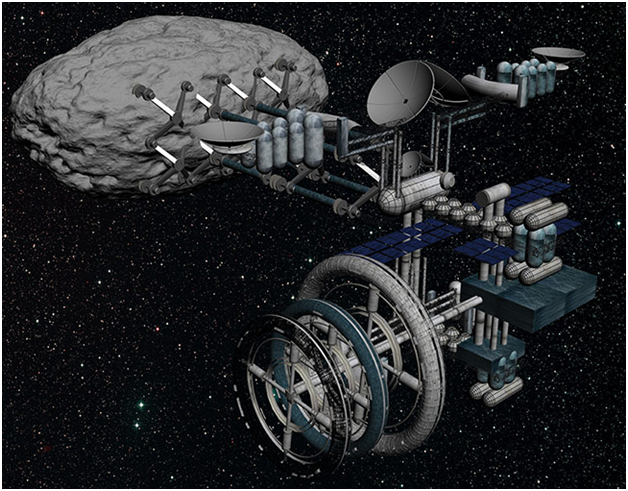My last few blogs have been about the framework of international law under the United Nations that is supposed to govern how space faring nations conduct the exploration and exploitation of space for the benefit of all nations. I felt that this was topical because of increasing discussion of mining asteroids. Now that we have private companies seriously planning for asteroid capture and mining, it is time to take a look at how such mining would fit within the framework of international space law.
Currently, companies are reluctant to commit major resources until the vague status of private property rights in space is clarified. The United Nation treaties in space say that no member nation or any organization within a member nation can claim ownership of any celestial body or zone of outer space. The laws also say that if something is collected by a nation or private company on a celestial body and brought back to Earth, portions of it should be made available to other nations. This is obviously a problem for a company that wants to go to an asteroid, mine valuable ore and return that ore to Earth to make a profit. Without some sort of ability to stake a claim that is recognized by other parties, there would be nothing to stop another company from following the first to an asteroid with valuable minerals and starting their own mining operation. Without some sort of international agreement, there could be violent confrontations between private space mining operations.
This summer members of the United States Congress introduced a bill called the American Space Technology for Exploring Resource Opportunities in Deep Space (ASTEROIDS) that would protect property rights for commercial asteroid mining. With private companies in the U.S. launching spacecraft and planning to mine asteroids, property right in space are very important. Of course, critics point out that this violates treaties that the U.S. has sign with respect to space exploitation. The authors of the bill respond by saying that they are not suggesting that the U.S. or U.S. company claim sovereignty over asteroids but merely that a company which manages to mine an asteroid will own what they have extracted. Proponents of the ASTEROIDS bill chose asteroids in the hope that the resulting blowback would not be as bad as if the discussion were about the Moon or Mars.
One big problem about passing laws or signing treaties about the exploitation of outer space has to do with enforcement. There are a few signatories of space treaties that have active space programs with massive investment in infrastructure. If the few nations that can launch their own spacecraft agree on a disposition of resources, how on Earth (literally) could the other nations do anything about it? As they so often like to say, space is a "frontier" and just like any frontier, the law may be difficult to enforce.
